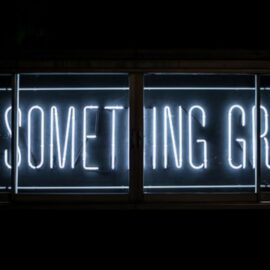

This article is an excerpt from the Shortform book guide to "Originals" by Adam Grant. Shortform has the world's best summaries and analyses of books you should be reading.
Like this article? Sign up for a free trial here .
How do you generate new, original ideas? Do you think originality is pure luck or there is a formula behind it?
According to Adam Grant, the author of Originals, the key to generating original ideas is to come up with LOTS of ideas. Most of them won’t be good, but some of them will be gems.
Here’s how you can increase your chances of generating original ideas.
How to Generate New, Original Ideas
You increase your chances of getting original ideas by simply creating more ideas. Despite being widely known for just a few seminal works, Mozart, Picasso, and Edison each had thousands of compositions/pieces/patents. This is much better than generating few ideas and trying to perfect them.
You can also increase your originality by having a breadth of experience in orthogonal fields (like engineering x art) over a sustained period of time. The more different, the better. A popular study found that Nobel prize winners were more likely to be thespians and creatives than non-Nobel-winning professors.
Status Quo Hurts Originality
One important prerequisite to coming up with original ideas is to question the status quo. Much of modern life is built around conformity – the structure and rules of schooling, uniform career tracks, the social recognition of status and accomplishment. However, this can be suppressive, pushing people into guaranteed success instead of venturing into the unknown, dreading failure instead of aiming for innovation.
And so the reason that many innovative companies aren’t started earlier is that many people simply don’t take the time to question why the status quo exists, and how it could be better.
Testing Ideas
But if you generate lots of ideas, you have limited resources and you can’t pursue them all. How do you tell which ideas are good?
First off, you’re a terrible judge of your own ideas. We generally all suffer from overconfidence in our own abilities. Like the Lake Wobegon effect, we tend to believe we and our ideas are better than they really are, and we find it hard to let go of our favorite ideas. When confronted with opposing evidence, we fall prey to confirmation bias, more readily accepting evidence that reinforce our prior beliefs. And we falsely believe that a new idea is unique and immune from criticism for previous failures – those were bad ideas, this one is different.
Instead, test your ideas with believable colleagues and with your target audience. Colleagues have the benefit of domain expertise (making them credible evaluators) and lack of a personal stake in your idea (preventing them from being risk averse and closed to new ideas). Therefore, they’re the best positioned to point out flaws in your idea, which you should openly consider without being defensive or biased.
Similarly, your target users will openly tell you how your idea will fit into their lives and whether it might be pointless. (However, it’s important that users be observed in a natural environment, rather than a focus-group like setting, where they have an artificially heightened sense of criticism.)
Exercise: Generating and Testing Ideas
Think about how you can create more novel ideas and validate them.
Generating more ideas is important to finding the few good ones. What are some ways you can generate more ideas in your daily life?
Optional: spend 5 minutes writing any ideas that come to mind, in an area that you care about. Get used to the practice of writing down lots of ideas, rather than worrying about having them perfect.
Who are 2-3 credible people you can test your ideas with? Remember that they should 1) have domain expertise in what you’re doing (either as a professional or as a user), and 2) lack a personal stake in your success, so they’ll be honest.

———End of Preview———
Like what you just read? Read the rest of the world's best book summary and analysis of Adam Grant's "Originals" at Shortform .
Here's what you'll find in our full Originals summary :
- How to generate innovative ideas
- Why quantity is the key to quality
- How rules can inhibit a child's originality






